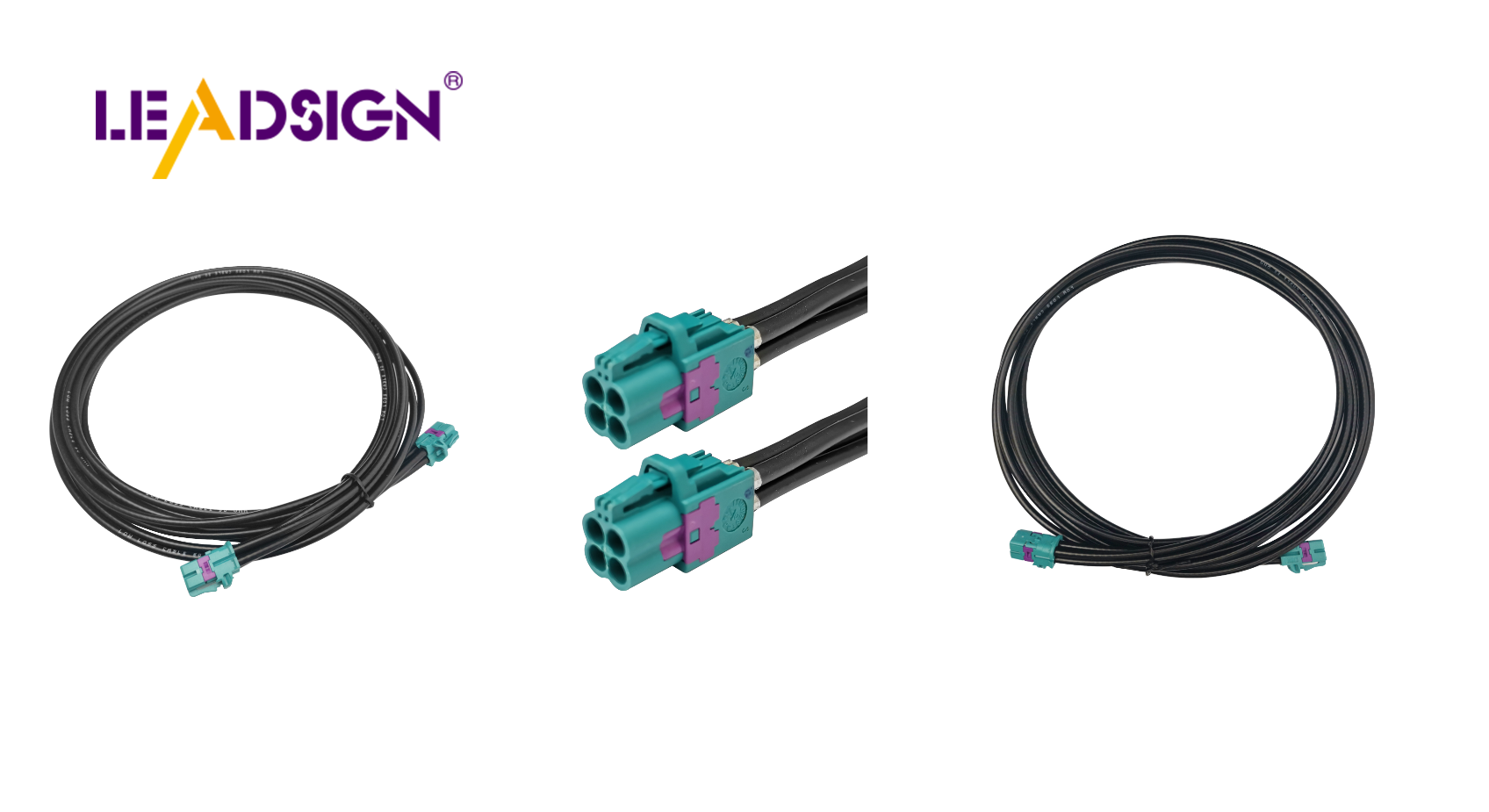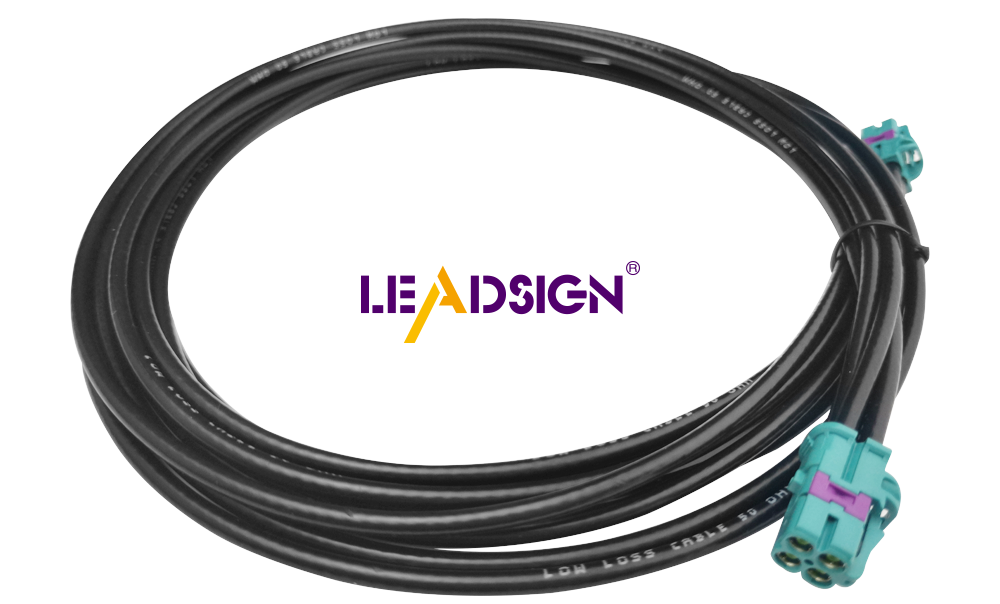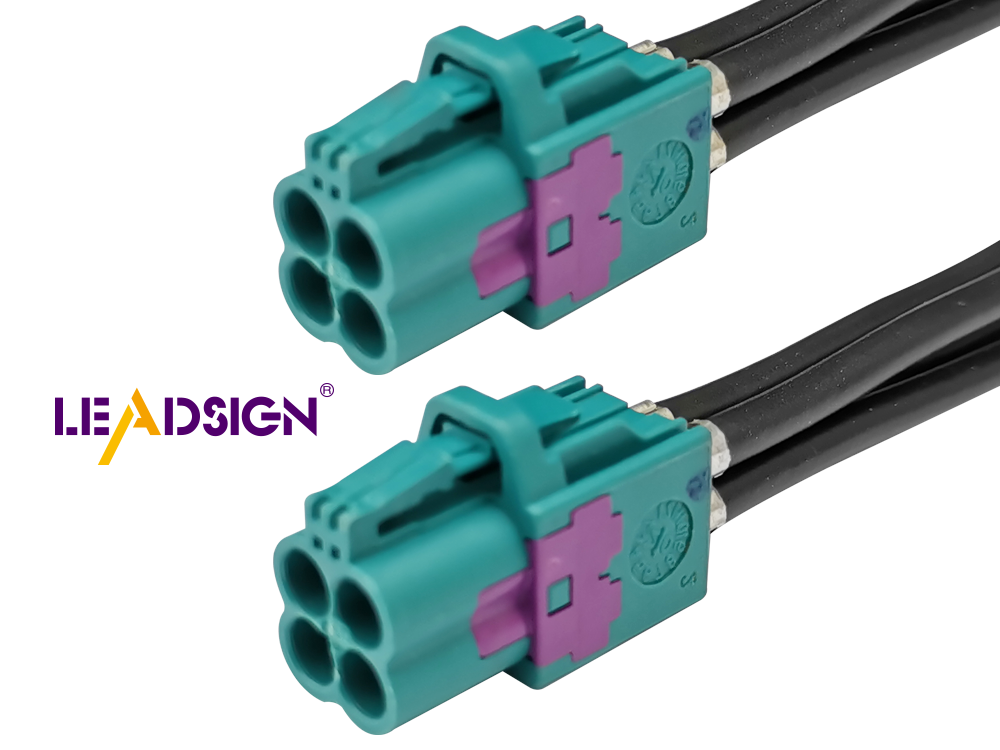Automotive Electrical Connectors Types Explained Simply

Car electrical connectors are important for vehicles, and understanding the various automotive electrical connectors types is essential. They help power and signals move smoothly, which is key for how cars work and stay safe. Connectors are crucial in safety parts like seatbelts, airbags, and brakes, and these must always work well. The need for car connectors is growing fast due to the increasing use of electricity in vehicles and the implementation of advanced safety features. Knowing different connector types aids in fixing or designing cars, as they significantly affect how cars function and maintain safety.
Overview of Automotive Electrical Connectors
What Are Automotive Electrical Connectors?
Definition and Basic Function
Car electrical connectors are key parts in cars. They help power and signals move easily. These connectors make sure car systems talk to each other well. They are made to handle tough conditions like shaking, wetness, and heat. This strength helps them work well for a long time, boosting how modern cars perform.
Importance in Vehicle Systems
Connectors are very important in cars. They join or separate wires, helping parts fit with the car's wiring. This link is needed for many car systems, from lights to safety tools. As cars change, makers create new ways to connect and keep safe.
Role in Vehicles
Connection of Electrical Circuits
Connectors join different electric paths in cars. They let power and signals pass between parts like the engine brain, music systems, and safety tools. This link is needed so all parts can work together smoothly.
Impact on Vehicle Performance and Safety
A car's performance and safety rely a lot on good connectors. A strong link makes sure important things like airbags work right. If connectors fail, it can be dangerous. So, making good connectors is very important for car safety and how they run.
Types of Connectors

Knowing different automotive electrical connectors is important for car work. Each connector type has a special job and helps cars run better and safer.
Blade Connectors
Features of Blade Connectors
Blade connectors, also called spade connectors, are very common in cars. They have a flat metal piece that fits into a slot. This makes them easy to connect and disconnect, which is good for parts needing frequent changes. Blade connectors are usually made from brass or copper, which conduct electricity well and last long.
Typical Applications in Vehicles
In cars, blade connectors are used in wire bundles, fuse boxes, and other electric parts. They connect wires to switches and relays where a secure but removable link is needed. Their simple design makes them reliable in car systems.
Ring Connectors
Features of Ring Connectors
Ring connectors are another key type of automotive electrical connectors. They have a metal ring that goes over bolts or studs for a strong connection. The ring shape keeps it attached even when the car shakes or moves. These often have insulation to stop short circuits and improve safety.
Typical Applications in Vehicles
Ring connectors are used for grounding and battery links. They handle high power loads well, so they're great for important parts like the starter motor. Their stable connection under tough conditions makes them vital in car systems.
Bullet Connectors
Features of Bullet Connectors
Bullet connectors are round and fit tightly into sockets. Like blade connectors, they allow quick connections but hold tighter due to their shape. They're useful where space is tight because they're small.
Typical Applications in Vehicles
In automotive electrical connectors, bullet connectors often link lights like headlights and taillights. They stay connected despite car vibrations and movement. Their ease of use makes them perfect for tight spaces.
Expert Testimony: "Whether you work on cars as an engineer or hobbyist, knowing about electrical connectors helps with designs and repairs." Picking the right connector affects how well the car's electric system works.
By learning about these different automotive electrical connectors, people can make smart choices that boost performance and keep things safe. Choosing the right connector improves how cars work and stops problems before they start.
Multi-Pin Connectors
Features of Multi-Pin Connectors
Multi-pin connectors are special because they connect many wires at once. They have several pins in one piece, letting different signals and power go through together. This makes car wiring simpler and more efficient. These connectors often lock to stay secure, which is important for keeping car systems working well even when the car moves a lot.
Typical Applications in Vehicles
In cars, multi-pin connectors are used where many connections are needed. They help engine parts talk to each other by connecting sensors to the engine's brain. They're also used in entertainment systems to link sound, video, and maps. Their strong build and ability to handle lots of connections make them important for modern cars that rely on electronics for safety and performance.
High-Speed FAKRA-Mini Connectors
Features of High-Speed FAKRA-Mini Connectors
High-speed FAKRA-mini connectors are a big step forward in car connectors. They send data very fast, up to 20 GHz and 28 Gbps. They're small, saving space where there's not much room. Their design saves money too while handling high-speed needs well with their 50 Ω impedance.
Applications in Autonomous Driving and Infotainment
These connectors are perfect for new car tech like self-driving features. They quickly send data needed for smart driving decisions. They're key in helping with safe driving tools like cruise control that adjusts speed or keeps the car in its lane. In entertainment systems, they allow great sound and video quality, making rides more fun. They also work well with map systems and backseat screens, showing how useful they are among different car connector types.
Expert Testimony: "Whether you're fixing cars or making parts, knowing about connectors helps improve your work." Picking the right connector type is crucial for making cars run better and safer.
By learning about these different automotive electrical connector types, people can choose wisely to make cars work better and avoid problems before they start.
Choosing Connectors
Picking the right car connectors needs knowing some important things. These help connectors work well and safely in cars.
Current Rating
Why Current Rating Matters
Choosing the right current rating for connectors is key. Each connector can handle a certain electric flow. Using the correct one keeps the system working well. It stops overheating and damage to car parts.
Problems with Wrong Rating
Using wrong-rated connectors can cause big problems. If too low, they might overheat and cause fires. If too high, it wastes money and energy. So, matching ratings to car needs is crucial for safety.
Environment Conditions
Thinking About Heat and Wetness
Car connectors must face different weather conditions. Changes in heat and wetness affect how they work. Picking ones that can handle these makes them last longer. Makers tell what temperatures and moisture levels are okay.
How Environment Affects Lifespan
Weather affects how long connectors last. Extreme heat or wetness can ruin them over time. Choosing ones made for specific conditions keeps them strong longer. This helps keep the car's electric system working well.
Compatibility
Making Sure They Fit Car Systems
Connectors must fit with car systems perfectly. They need to match wires and parts without issues. This stops failures and boosts performance by fitting with car specs.
Avoiding Wrong Connectors
Wrong connectors cause big trouble in cars. They lead to bad connections and malfunctions. To stop this, choose ones that fit the car's design right. Good picks make the system safe and reliable.
Common Issues and Maintenance

Potential Problems
Common Issues with Connectors
Car electrical connectors have many problems. Corrosion is a big worry, especially in wet places. This can make them not work well or stop working. Loose connections are also risky because they can cause flickering lights or no power at all. Over time, wear and tear from shaking and moving can damage connectors, making them less effective.
Signs of Connector Failure
Knowing when connectors fail is important for car safety and performance. Flickering lights or broken electronic systems often mean connector trouble. Weird noises from electric parts can also show a bad connection. Sometimes, you might smell something burnt or see damage around connectors, which could mean overheating or short circuits. Checking often helps find these problems early.
Maintenance Tips
Regular Inspection and Cleaning
Regular care can make car connectors last longer. Checking them often helps find issues before they get worse. Cleaning with the right stuff removes dirt and rust, keeping them working well. Using dielectric grease protects against wetness and rust, making them last even longer.
Ensuring Secure Connections
Keeping connectors tight is key for cars to run well. Tightening loose connections stops flickering lights or power loss. When changing connectors, picking the right size makes sure they fit well and stay put. Checking if they're connected properly keeps the electric system steady, cutting down on failures.
Picking the right car connector is very important. It helps cars work well and stay safe. The blog talked about different connectors like blade, ring, bullet, multi-pin, and high-speed FAKRA-mini types. Each one does a special job to make car systems better. Knowing about these connectors helps people fix cars easier. A car fan said, "Learning about connectors helped me fix my car." Using this knowledge makes cars run better and last longer.
See Also
Understanding HSD Connectors Essential for Automotive Applications
Why Fakra Connectors Matter in Today's Automotive Design
Fakra Connectors: Key Components in Automotive Technology

